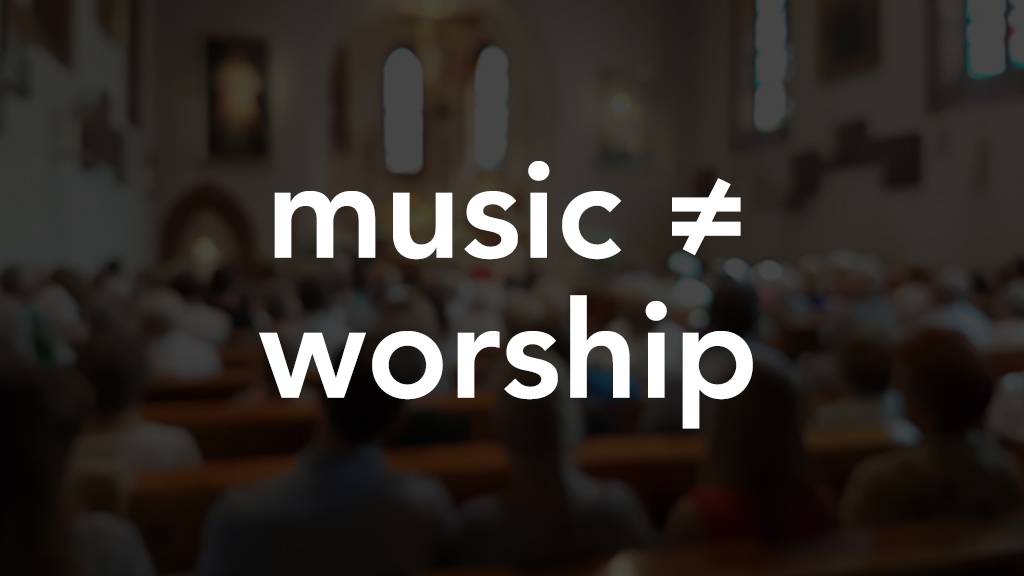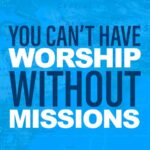Somewhere along the line, we started referring to music ministry as “worship ministry.” In a related manner, the music portion of a service is now often called “the worship service,” and the person who leads this music portion is now often called “the worship leader.”
At the risk of being viewed as a pedant, I believe we should evaluate our nomenclature. In some contexts, these terms may actually be accurate. So, I’m not in favor of abandoning them (more on this later). But I do believe that when these terms are used interchangeably, we are imparting to our congregations an unbiblical view of worship.
Defining Biblical Worship
Music is very much a part of biblical worship, but worship is not music alone. So, what does biblical worship look like? And specifically, what does the worship of the assembled church on the Lord’s Day look like (of course, we understand that worship takes place during all times of our life)? Is there something specific that God expects of New Covenant believers when they gather on the first day of the week? I believe there is.
In the New Testament text, Lord’s Day gatherings of New Covenant believers are characterized by the following:
- The Ordinances – Acts 2:38-42, Acts 20:7, 1 Corinthians 11:17-34
- Preaching and teaching – Acts 2:42, 2 Timothy 4:1-5, Romans 10:13-17, 1 Corinthians 2:1-8, Ephesians 4:11-14
- Reading Scripture – Acts 13:15 (as was the Old Covenant practice as seen in Nehemiah 8:1-3 and Luke 4:16-21), 1 Timothy 4:13, 1 Thessalonians 5:27, Colossians 4:16.
Click here for help with planning a scriptural call to worship. - Praying – Acts 2:42, 1 Timothy 2:2, 8; Acts 12:11-17; 1 Corinthians 14:14-15
- Singing – Ephesians 5:18-19, Colossians 3:16, Acts 16:23-24, 1 Corinthians 14:12-15.
Check out this article about selecting congregational music. - Giving – 1 Corinthians 16:2, 2 Corinthians 9:6-14, Acts 4:32-35
While there are other things that might take place on the Lord’s Day—caring for widows, helping the poor, community meals—the above-listed elements are the things we see regularly practiced by and commanded of New Covenant believers when they gather.
A Revolution in Worship Ministry
According to this biblical view of worship, the worship service includes not just singing, but also preaching, teaching, praying, reading Scripture, giving, and the ordinances. A sound worship ministry doesn’t view music as the greatest of these church practices; rather, the church values all these elements as equally profitable for the local church. The worship leader(s) should be the one(s) who oversees all of the church’s worship. In some churches, this would be the senior pastor, and in other churches, this would be a number of pastors. This is biblical worship ministry.
*****
I love music. Since the age of seventeen, I have led Sunday music at the four churches where I have been a member.
But I also love leading the gathered church in true, biblical worship and challenging believers to dig deeper into the Scriptures. I hope that we can together come to an understanding of what God expects from us as worshipers.
I admit this is a pet peeve topic. Please know that I have done my very best to be helpful with words that are “gracious, seasoned with salt.” If you have input, I would love to hear from you on this topic!







2 Responses
Thank you for the great article, as I am struggling with this very subject. I am a Newcomer to Christ and a musician, and trying to sort out my repertoire so as to be both pleasing yet doctrinally correct. So I would break the music down a little more and consider three categories: “Contemporary Christian Music” (just listen to the radio and that’s primarily where my material is coming from), and within the church setting, I see that there are basically two types of music which would be either “worship music” or “praise
music” (I believe most of the music I hear is actually music of praise rather than music of worship). In my church the music is definitely considered the “worship ministry” and the music portion of the service is definitely called “worship”. I find it more comfortable myself to call it the “music ministry”. In the interest of transparency I will say that I attend Calvary Chapel of Fort Lauderdale. Remember the origins of this church coined the phrase “Jesus Freaks” back in the ’60s in California, so music has always been an integral part of the church.
We are very much based on the inerrancy of the Bible, so I can see that the music that is actually played during services has in fact been examined to make sure that it is basically doctrinally sound. However, we generally do not play many old “traditional hymns”, and most of the music is in fact quite contemporary. Many of those songs cross over both ways so I don’t see a problem with that. There are many songs that I like which are not performed during Service, yet are quite acceptable in more social or small group settings. As I said, as a newcomer to the Faith and the church, I have been amazed at the controversies I see (primarily online) regarding whether certain songs and artists are possibly “heretical” or not.
From my own personal experience, I gravitate towards the songs which reflect my own experience and I find uplifting. I hope that through my gift of music and being able to share some of that with other people, I will be able to uplift us all for the Glory of God and our Savior Jesus Christ. After all, it IS all about Him and for Him. Thank you for this opportunity to express some of my thoughts on the subject. Best regards and Blessings to all 🙏.
Hey, Eric! Thanks for sharing your thoughts and experiences. I plan to follow up with a reply later!